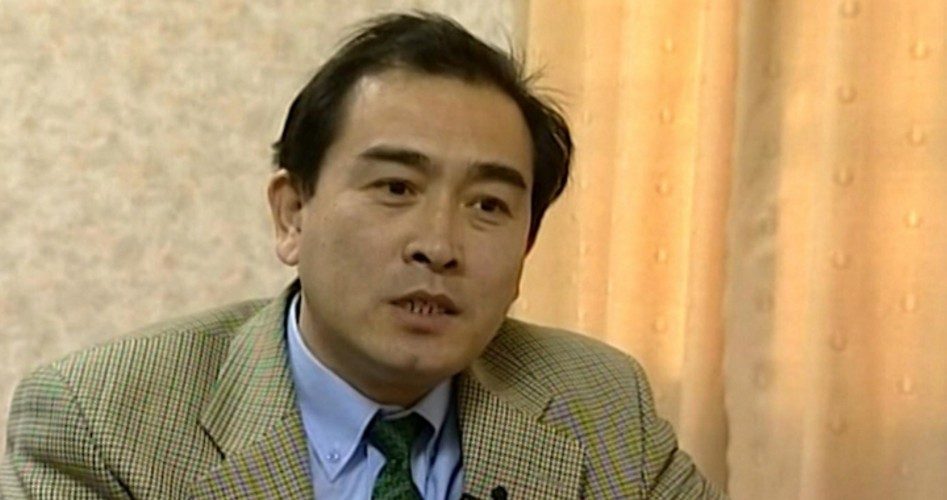
When Thae Yong-ho (shown), North Korea’s deputy ambassador to the United Kingdom, defected to South Korea in August, he and his family were immediately taken into protective custody. They were grilled by South Korea’s intelligence service not only to glean all the information they could from them about North Korean dictator Kim Jong-un, the ruling class, and the political situation there, but also to determine that he wasn’t a spy. After all, he’d fooled both Kim and the Brits into thinking he was the real deal — a dyed-in-the-wool hard-core communist — ever since 2004.
On Monday, South Korea sources announced that the months-long interrogation was complete and that, effective on this coming Friday, Thae will be free to go, to begin his new life in South Korea.
Thae is the highest level diplomat to defect from the dynastic Kim regime in 20 years, and followed a widely-heralded defection in April of 13 restaurant workers from a North Korean restaurant in China. On Monday, Thae spoke of some of the reasons he defected: He was concerned about his two sons’ futures — they are both bright students studying in England — because he and his family could be called back home at any time. He also said that, now that the interrogations had been completed, he could spend the rest of his life “freeing the North Korean people from repression and persecution.” “I will engage in public activities even if it threatens my own safety,” he said.
He provided some insights into the personal life of Kim’s ruling class, including their highly insecure tenure in office. He said it was “perfectly normal” for their homes to be bugged and monitored for any hint of disloyalty to the regime. For instance, when North Korea’s defense minister Hyon Yong-Choi was executed in 2015, the international media said it might have been because he made the gross mistake of falling asleep during one of Kim’s long and endlessly boring speeches.
Not so, said Thae: It was “because he said the wrong things at home.”
He noted that life among the elites is far from luxurious. Most high-level members are paid so little that they are “encouraged” to make some extra money “on the side,” referring to a black market that exists in North Korea despite sanctions against any form of “capitalism.” Said Thae: “Although North Korea is under a socialist system, [the black market] is basically running in a capitalist form.”
A spokesman for the South Korean government, Jeong Joon-hee, expanded on Yong-ho’s motivations for defecting: “We know that Deputy Ambassador Thae is saying that his distaste for the Kim Jong-Un regime and [his] yearning for the Republic of Korea’s free democratic system, and the future of his children, are motives for his defection…. [His defection is] a sign that some of the core elite in the North are losing hope in the Kim Jong-un regime.”
Thae’s months-long interviews no doubt yielded much information over the north’s weapons and missile programs, especially following tests performed in defiance of international sanctions. It might also signal the beginning of an increasing flow of other high-level people, according to Jeong.
Phil Robertson, deputy director of Human Rights Watch Asia, filled in some of the blanks for the Guardian: “There’s really been no let-up whatsoever in the abuses of human rights under Kim Jong-un. Forced labor is systematic and pervasive. It has become a basic pillar in the economy, in everything from constructing a skyscraper in Pyongyang to harvesting crops in rural areas.”
Thae Yong-ho could pay a high price for his promise to expose real life among the North Korean elites, according to Robertson. Relatives living in the north could now expect “perpetual punishment in brutal political prisoner or forced-labor camps” especially since Kim Jong-un has been “harsher than his father” in punishing the families defectors leave behind.
It took Thae months of meticulous planning to make his escape. The details remain murky, except that when it was time to leave, his two sons virtually disappeared from classes and from Facebook, causing great concern among their classmates. It is likely that he and his family escaped across the North Korea-China border and then made their way, using diplomatic papers, either by sea or by air, to South Korea.
South Korean President Geun-Hye told her government in October to make it easier for defectors to live in her country. Some in the past have found it difficult to integrate into a freer society, making the decision to defect even more difficult. With easing of the transition, however, Geun-Hye said to prepare for an increasing flow from the north.
That flow, through July, reached 850, up 15 percent through the same time last year.
2004 video image of Thae Yong-ho: AP Images
An Ivy League graduate and former investment advisor, Bob is a regular contributor to The New American magazine and blogs frequently at LightFromTheRight.com, primarily on economics and politics. He can be reached at [email protected].



